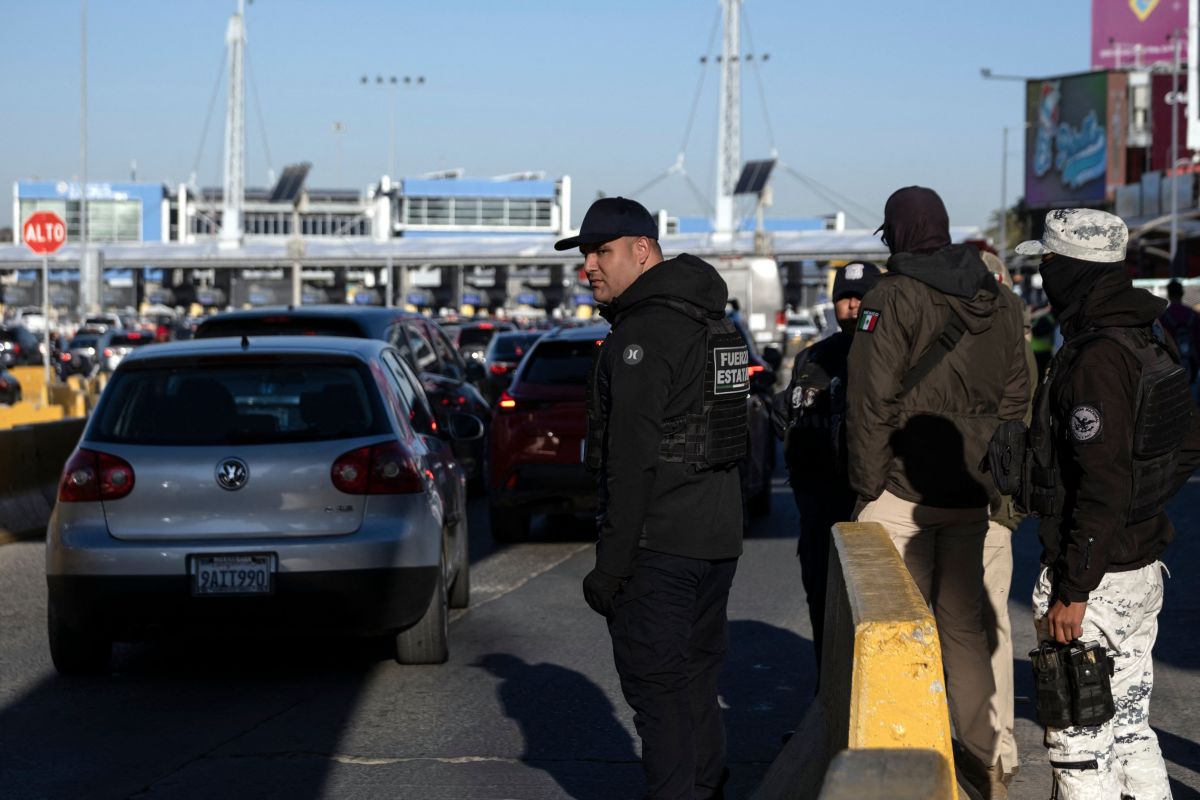By Manuel Ayala
TIJUANA, Mexico – Civil associations have found exceptions to the controversial US Title 42, opening an opportunity for Mexican and Central American migrants on Mexico’s northern border to cross north and request asylum.
Dozens of families enter California daily from Tijuana to request humanitarian asylum with an exception to Title 42, a rule from the Donald Trump era (2017-2021) and expanded by President Joe Biden to immediately deport migrants with the argument of the pandemic.
Organizations such as Al Otro Lado and Ejército de Salvación work with city shelters so that migrants have access to this resource, which does not guarantee them asylum, but does give them the opportunity to present their cases.
An option to get away from threats
The Mexican Beatriz Cabrera, her sentimental partner and her two children, were one of the families selected after a month and a half wandering around the city without knowing where to find help.
“After having been browsing, seeing who could receive us, today we are very happy because they now give us this possibility, because as we are from the LGBT community we went through very complicated things,” he told EFE.
Beatriz recounted that they fled their native Guanajuato, a state in central Mexico, due to the constant attacks and threats they suffered due to their sexual diversity, for which their integrity and that of minors was at risk.
They arrived in Tijuana to request asylum in the US, but for a time they wandered around different parts until they found the Juventud 2000 shelter, one kilometer from the border port of San Ysidro, where they received refuge and spent New Year’s Eve.
A longed for opportunity
Mayra Lizeth Vanegas is another of the people who, along with the eight members of her family, also had this opportunity.
“I am very grateful because I come with my whole family and we had been wandering around places like Tapachula, Quintana Roo, Aguascalientes for five years now, and we went through threats and kidnappings,” he narrated.
She told EFE that the entire family left Honduras because an armed group threatened to kill one of her children.
But later, in Tapachula, on the southern border of Mexico, one of his nieces was also kidnapped, so they were moving through different cities until they reached Tijuana.
In this city they also spent the night on the street until someone found them a few days ago and took them to the shelter.
“That person is our angel, my children said ‘they were the three best days we’ve ever had’, because here there were piñatas at the end of the year, cake and gifts,” she mentioned.
Asylum not guaranteed
José María García Lara, director of the Juventud 2000 shelter, explained to EFE that for six months they have been working to find legal exceptions.
Although he clarified that this does not guarantee that they will obtain asylum, because “they have to be very exceptional cases.”
What it does represent is “an opportunity to be able to present their applications and not be at the border waiting for months or years as has happened with other migrants,” he said.
The activist indicated that, in addition, this legal resource also helps the shelters not to have the space saturated and receive more migrants.
Sebastián Farías, who works for the organization Psicólogos Sin Fronteras, shared that before people arrive at the El Chaparral border port, which is where they enter the US, they are offered a talk with psychologists and lawyers.
They explain to them the process they will go through once they are received by the US authorities, they know what they are going to face and they are also prepared in case their applications are not accepted.
The aid from the organizations comes after the United States announced on January 5 that it will welcome 30,000 migrants a month from Cuba, Nicaragua, Venezuela and Haiti, but will immediately deport the rest under Title 42.
The region is experiencing a record migratory flow with 2.76 million undocumented immigrants detained at the United States border with Mexico in fiscal year 2022.
